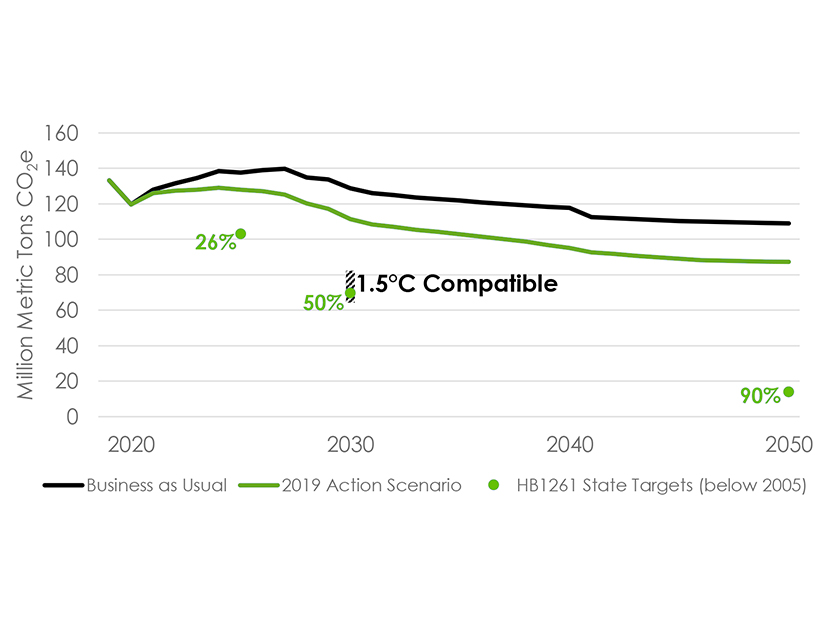A recent report by Energy Innovation and RMI shows that Colorado is a long way from meeting emissions reduction targets set by the state’s 2019 Climate Action Plan. Even so, Governor Jared Polis is wary of strict legislation to cap emissions.
Democrats and environmental activists support SB200, which requires Colorado’s Air Quality Control Commission (AQCC) to “adopt rules that will result in the statewide reduction of greenhouse gas (GHG) emissions of 26% by 2025, 50% by 2030, and 90% by 2050, as compared to 2005 emissions.”
Energy Innovation and RMI’s report is based on data from the Colorado Energy Policy Simulator (EPS), which is intended to provide “additional analysis of policies that can drive deep emissions reductions in Colorado.” According to the simulator, which includes a “business-as-usual” scenario, existing policy, plant retirements and technology innovation will not be sufficient to meet the goals in the Climate Action Plan.
The EPS also includes a “GHG Roadmap 2019 Action Scenario based on legislation, utility commitments and executive action in 2019 and 2020.” However, even when taking these into consideration, there is still a significant gap between the state’s projected economywide GHG emissions and the goals set in 2019.
According to the EPS scenario, Colorado would produce more than 100 million tons of emissions in 2030. To meet the state’s targets and help limit climate change to 1.5 degrees Celsius, the state must curb emissions to about 70 million tons by 2030.
Environmental groups and democratic lawmakers see SB200 as a way to close this gap. In January, the Polis Administration released the GHG Pollution Reduction Roadmap, which also concluded that current policy would not be sufficient to meet Colorado’s emissions targets. But Polis has been known to favor incentive programs and voluntary action rather than stringent legislation.
His concern with SB200 mainly lies in the authority it gives the AQCC and its potential to stunt Colorado’s economy. In April, Polis told The Colorado Springs Gazette’s editorial board that he would veto the bill if it made it to his desk. He said a reliance on future technology to meet these goals would require a flexible approach, and he’s unwilling to “give this unelected board, the Air Quality Control Commission, near-dictatorial control of our entire economy with a legal mandate to meet certain hard carbon reduction goals, many of which we’re already much of the way to.”
“We have a plan to be able to continue to clean our air, reduce carbon emissions, and part of that plan is additional legislative action like the infrastructure bill, like a building electrification bill, but requiring one particular state committee to have dictatorial authority across every sector of the economy is not a constructive way to achieve Colorado’s climate goals,” he said.
During a Senate hearing in April, one of the bill’s sponsors, Democratic Sen. Faith Winter, said that there are no “hard caps.”
The AQCC “has the flexibility to adjust goals as necessary to make sure we’re meeting our statewide goal,” she said.




